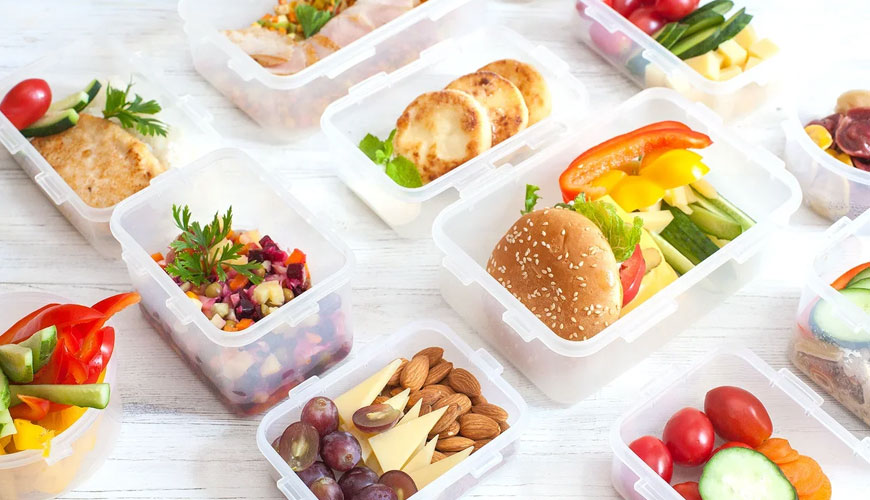

EUROLAB laboratory provides testing and compliance services within the scope of EN 1186-5 standard. This part of the EN 1186 standard specifies test methods for determining the overall migration from only one surface of plastics intended for food contact to aqueous-based food simulants by exposing the food contact surface using a cell.

This method is most suitable for plastics in the form of films and sheets, but is particularly applicable to materials consisting of multiple layers or surfaces that differ in their migration properties and which must be tested only in contact with the food simulant.
The overall migration of non-volatile substances from a plastic sample is determined as the mass of the non-volatile residue after evaporation of the food simulant. The choice of test conditions and food simulants will be determined by the conditions of use.
Test samples of approximately 2,5 dm² are exposed to food simulant in a cell for a period of exposure at temperatures up to (inclusive) 70 °C. At the end of the test period, each test sample is removed from the cell. The food simulant from each test sample is evaporated to dryness, the mass of the non-volatile residue determined gravimetrically and expressed in milligrams per square decimeter of surface area of the test sample.
Plates, stainless steel, nickel, platinum, platinum alloy, gold, diameter 50 mm to 90 mm and maximum mass 100 g are used for evaporation of food simulants and for weighing residues. Glass, glass-ceramic or ceramic dishes may be used provided that the surface properties are such that the mass of the dishes reaches a constancy of ± 0,5 mg after conditioning in the desiccator used after evaporation of the specified food simulants. Stainless steel and nickel containers are only suitable for distilled water and ethanol solutions. Glass, glass ceramic, glazed ceramic, platinum, platinum alloy or gold dishes are suitable for all three simulations.
It is important that test specimens are clean and free of surface contamination (many plastics can easily attract dust due to static charges). Before preparing test specimens, remove all surface contamination from the specimen by gently wiping the specimen with a lint-free cloth or brushing it with a soft brush. Under no circumstances should you wash the sample with water or solvent. If it is stated in the instructions for use of the article that it must be washed or cleaned before use, refer to EN 1186-1. Cotton gloves should be worn when necessary to minimize handling of samples.
EUROLAB, with its more than 25 years of experience, state-of-the-art accredited laboratories and expert team, helps you get precise and fast results. Do not hesitate to contact our laboratory for your testing and certification requests.
To get an appointment, to get more detailed information or to request an evaluation, you can ask us to fill in our form and reach you.